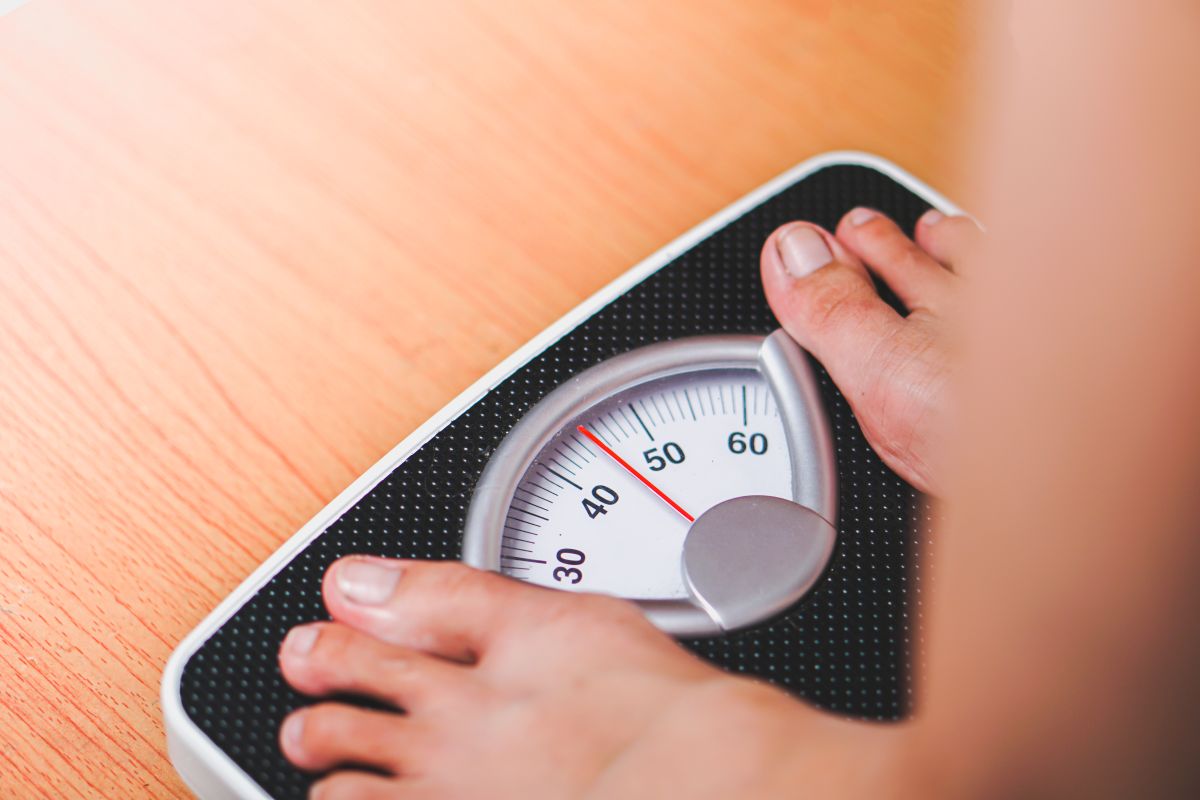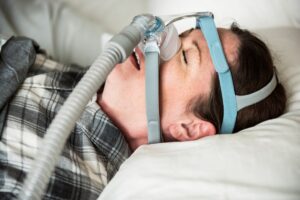If you’re struggling to lose weight — no matter how well you eat or how much you exercise — sleep apnea could be working against you. While most people think of sleep apnea as a breathing issue, it also plays a powerful role in metabolism, hormones, and weight regulation.
In fact, the relationship goes both ways:
- Excess weight can increase your risk of sleep apnea
- Untreated sleep apnea can make it harder to lose weight
Understanding this cycle is the first step to breaking it.
How Sleep Affects Your Weight
Good sleep plays a critical role in maintaining a healthy metabolism. When you don’t sleep well — as is the case with sleep apnea — your body struggles to regulate key hormones like:
- Ghrelin: The hunger hormone that increases appetite
- Leptin: The satiety hormone that tells you when you’re full
- Cortisol: The stress hormone that promotes fat storage (especially belly fat)
- Insulin: Regulates blood sugar and fat storage
Sleep apnea leads to fragmented, low-quality sleep and reduced oxygen levels — both of which trigger hormonal imbalances that cause:
- Stronger food cravings (especially for sugar and carbs)
- Increased appetite
- Slower metabolism
- Higher insulin resistance
- More fat storage (especially visceral fat)
The result? You gain weight — and it becomes harder to lose.
The Vicious Cycle: Weight Gain Makes Sleep Apnea Worse
Sleep apnea becomes more likely when there’s extra tissue around the neck, throat, or midsection. This extra weight puts pressure on the airway during sleep, increasing the chances of obstruction and breathing pauses.
The more weight gained, the more severe sleep apnea can become — which in turn, makes weight loss even harder.
Why Diet and Exercise Aren’t Always Enough
If you’re trying everything — meal plans, workouts, intermittent fasting — but the scale won’t budge, poor sleep may be the missing piece.
Even with a healthy lifestyle, untreated sleep apnea can:
- Keep your cortisol levels high
- Increase cravings at night
- Make you too tired to exercise
- Disrupt recovery and muscle repair
- Lead to emotional eating from chronic fatigue
Treating the root cause (sleep apnea) may be the breakthrough you need.
Can Treating Sleep Apnea Help You Lose Weight?
Yes. Many patients find that once their sleep apnea is treated, they:
- Sleep more soundly
- Crave less sugar and junk food
- Have more energy to exercise
- Experience less stress eating
- Lose weight more easily and consistently
Treatment doesn’t replace a healthy lifestyle — but it makes it much easier to succeed with one.
Effective Treatments That Support Weight Loss
If you’re concerned about CPAP, don’t worry — there are comfortable alternatives that can support weight loss and better sleep.
Options include:
- Oral appliance therapy: Custom-fitted mouthguards that keep your airway open
- Weight management support combined with apnea treatment
- Positional therapy to reduce back-sleeping
- Lifestyle counseling focused on long-term results
Related: CPAP Alternatives for Sleep Apnea
Related: Benefits of Treating Sleep Apnea
Frequently Asked Questions
Can sleep apnea cause weight gain even with a healthy diet?
Yes. Hormonal imbalances caused by sleep apnea can increase cravings, slow metabolism, and make it harder to lose fat — even if you eat well.
Does treating sleep apnea help with belly fat?
It can. Once your cortisol levels decrease and sleep improves, your body becomes more efficient at burning fat and reducing visceral fat storage.
Will losing weight cure my sleep apnea?
In some cases, weight loss can significantly reduce symptoms or eliminate mild sleep apnea. However, many people still need additional treatment.
Can skinny people have sleep apnea?
Yes. While weight is a factor, airway anatomy, genetics, and muscle tone also contribute to sleep apnea. You don’t have to be overweight to have it.
Should I treat sleep apnea before starting a weight loss plan?
If you suspect sleep apnea, it’s best to get tested and treated first — it’ll help regulate your hormones and make your efforts more effective.






